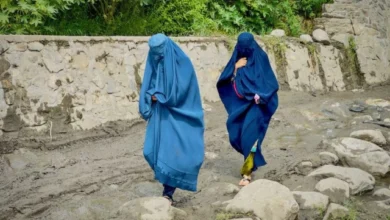Covid-19, Foreign Aid and “Global Britain”
UK in its recent “Spending Review” announced a cut of some £4 billion in the foreign aid budget, taking it below a long-standing threshold of 0.7% of GDP

As the Covid-19 pandemic continues to run rampant across much of the world, it is worth considering how countries have fared in tackling it, particularly developing countries, whose healthcare systems at first glance would be more likely to struggle to cope, given limited resources.
This, in turn, raises issues around support for the poorest countries from developed countries, which has become a contentious issue in countries such as the UK, where the Government in its recent “Spending Review” announced a cut of some £4 billion in the foreign aid budget, taking it below a long-standing threshold of 0.7% of GDP.
Suffice to say, this has resulted in significant opposition, but more on this later.
A glance at current figures for the number of deaths attributed to Covid-19 (as of November 27th, 2020) continues to show the United States has the dubious honor of the country with the highest death toll (see https://www.statista.com/statistics/1093256/novel-coronavirus-2019ncov-deaths-worldwide-by-country/ ).
Table 1: Covid-19 deaths by country (top 20) and world total on November 27th, 2020.
Country Number of deaths
USA 269,597
Brazil 171,497
India 135,752
Mexico 104,242
UK 57,031
Italy 52,850
France 50,957
Iran 46,689
Spain 44,374
Russia 38,558
Argentina 37,941
Colombia 36,019
Peru 35,785
South Africa 21,289
Indonesia 16,521
Belgium 16,219
Poland 16,147
Germany 15,767
Chile 15,235
Ecuador 13,316
World 1,439,587
Whist several developing countries are present in the list above by sheer dint of population (India, Indonesia, etc) it is notable that the US, European countries, and Latin American countries have suffered more severely than countries in Asia or Africa (issues around the nature and reporting of data notwithstanding).
Whilst a detailed analysis is beyond the scope of this article, what has been apparent is that the nature of the public health response by governments, for developed and developing countries alike, has been pivotal.
Indeed, key public health measures such as the wearing of face masks and physical (“social”) distancing are relatively costless, so less problematic for poor countries to implement.
Whereas the US and Brazil, for example, have been led respectively by Donald Trump and Jair Bolsonaro, right-wing “populist” political figures who have largely disdained scientific advice on containing the pandemic and undermined measures at state and local levels in their own countries.
Also evident is that the degree of state support provided to those having to self-isolate has been pivotal.
The UK for example has a poor state system of statutory sick pay – the level of which is set at £95.85 per week (https://www.gov.uk/statutory-sick-pay ) – which leaves workers with little option but to continue to work if their employer does not provide company sick pay, as they otherwise would not have enough money to live on.
In contrast, those countries that have imposed rigorous “test, trace and isolate” procedures, such as China, South Korea, Australia, New Zealand, and Germany to a degree, have had more success in suppressing or even eliminating the virus.
However, a focus on Covid-19 risks overlooking the fact that in the world’s poorest countries (which are often those scarred from ongoing conflicts) other diseases can (and continue to) claim far higher death tolls.
This is reflected in figures for infant mortality rates, in which Afghanistan had the highest recorded level in 2020, and for which the top-10 list is then dominated by sub-Saharan Africa, as shown in Table 2.
Sub-Saharan countries continue to make up the list until Pakistan is reached at no. 25 (with 52.1 deaths per thousand live births recorded in 2020).
Table 2: Infant mortality rate 2020
Country Infant mortality rate * Population in 2020
Afghanistan 110.6 38,928,346
Somalia 94.8 15,893,222
Central African Republic 86.3 4,829,767
Guinea Bissau 85.7 1,968,001
Chad 85.4 16,425,864
Niger 81.1 24,206,644
Burkina Faso 72.2 20,903,273
Nigeria 69.8 206,139,589
Mali 69.5 20,250,833
Sierra Leone 68.4 7,976,983
* Infant mortality rate is the number of deaths per 1,000 live births.
Source: https://worldpopulationreview.com/country-rankings/infant-mortality-rate-by-country.
That many of these countries are Commonwealth countries shines a light on the UK’s relationships towards them and to reconsider the notion of some incipient “Global Britain” after Brexit.
It has not been lost on commentators around the world that the only significant leverage the UK possesses is that of “soft power”.
Read Also
The Future of UK, EU Trade Agreements After Brexit
For instance, Mihir Sharma, writing for Bloomberg Opinion notes that “Only in the world of development does Britain remain globally relevant.
When it comes to augmenting state capacity, pioneering new development paradigms, and a host of other influential issues, what Whitehall says matters a great deal. Britain is not now and never will again be a superpower in any other way.
That this will further diminish the international standing of the UK goes without saying and will genuinely jeopardize aspirations to a Global Britain being a positive force in the world. With the UK’s poor performance in combatting Covid-19 adding to its malaise, developing countries seeking assistance may be better advised to look elsewhere.




I learned something new today. Watch equidia pronostics — live horse racing, Quinté+ analysis, pronostics, replays, and results. HD streaming with expert commentary and a comprehensive programme guide.
Hello folks!
I came across a 143 great site that I think you should explore.
This platform is packed with a lot of useful information that you might find valuable.
It has everything you could possibly need, so be sure to give it a visit!
https://www.makeythoughts.com/best-live-streaming-apps-for-android-and-iphone/
And don’t neglect, guys, that you at all times can inside this particular article find answers to address the most most complicated inquiries. Our team tried to lay out the complete content in an most understandable method.